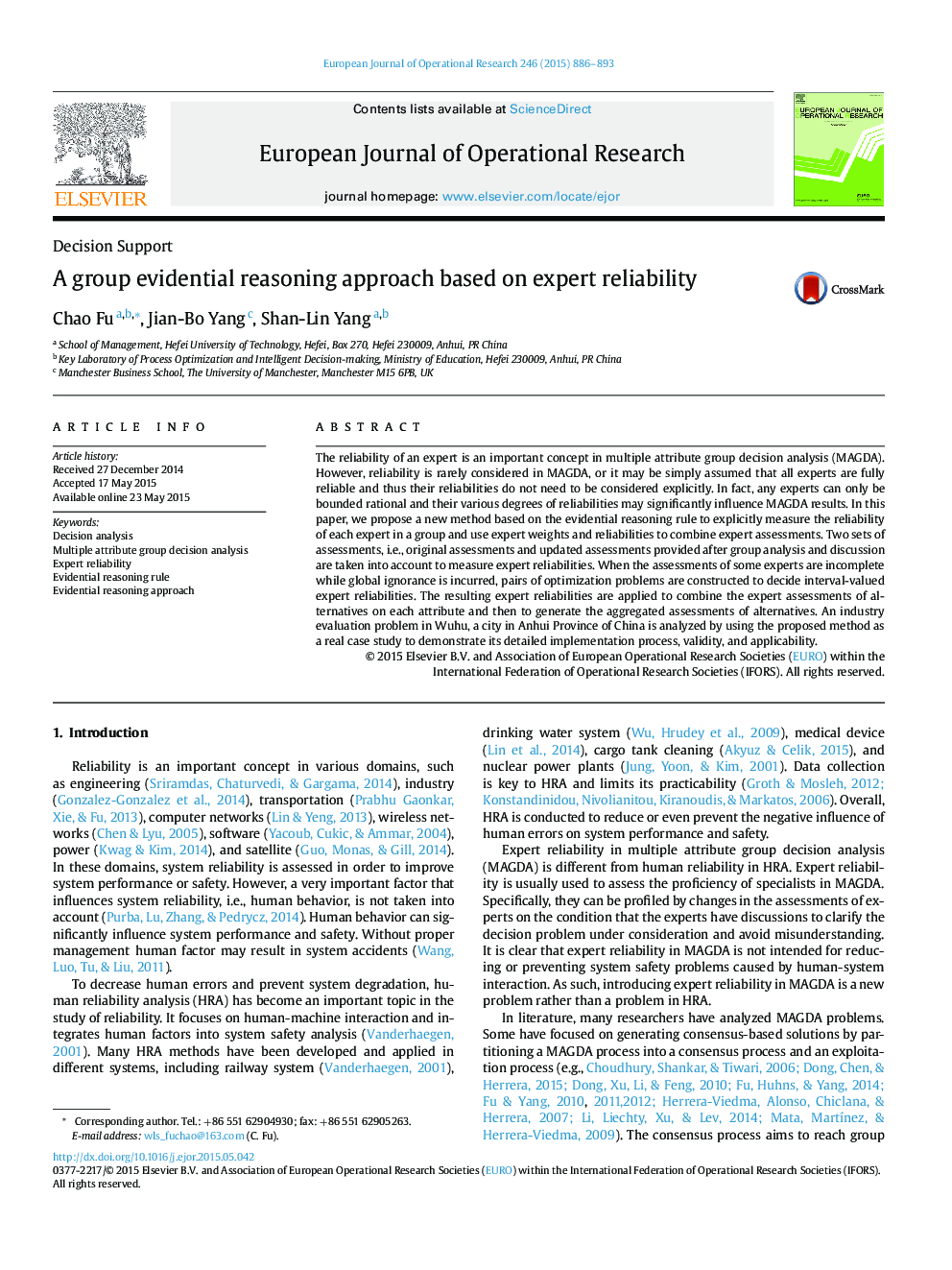| Article ID | Journal | Published Year | Pages | File Type |
|---|---|---|---|---|
| 479502 | European Journal of Operational Research | 2015 | 8 Pages |
•A group evidential reasoning approach based on expert reliability is developed.•Reliability of an expert in a group is measured.•Incomplete assessments are handled to form interval-valued expert reliabilities.•Weights and reliabilities of attributes and experts are included in the method.•The proposed method is used to analyze an industry evaluation problem.
The reliability of an expert is an important concept in multiple attribute group decision analysis (MAGDA). However, reliability is rarely considered in MAGDA, or it may be simply assumed that all experts are fully reliable and thus their reliabilities do not need to be considered explicitly. In fact, any experts can only be bounded rational and their various degrees of reliabilities may significantly influence MAGDA results. In this paper, we propose a new method based on the evidential reasoning rule to explicitly measure the reliability of each expert in a group and use expert weights and reliabilities to combine expert assessments. Two sets of assessments, i.e., original assessments and updated assessments provided after group analysis and discussion are taken into account to measure expert reliabilities. When the assessments of some experts are incomplete while global ignorance is incurred, pairs of optimization problems are constructed to decide interval-valued expert reliabilities. The resulting expert reliabilities are applied to combine the expert assessments of alternatives on each attribute and then to generate the aggregated assessments of alternatives. An industry evaluation problem in Wuhu, a city in Anhui Province of China is analyzed by using the proposed method as a real case study to demonstrate its detailed implementation process, validity, and applicability.
